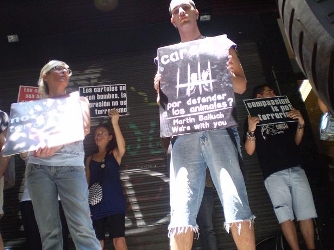 |
Asociacion Animalista Libera! |
**__Related stories:__***linkurl:Tips to safely provide records;http://www.the-scientist.com/blog/display/56276/
[15th January 2010]*linkurl:An Odyssey with Animals;http://www.the-scientist.com/news/display/56201/
[4th December 2009]*linkurl:A Legal Challenge to Animal Research;http://www.the-scientist.com/article/display/56167/
[December 2009]*linkurl:Animal rights activists charged;http://www.the-scientist.com/blog/display/55651/
[21st April 2009]














